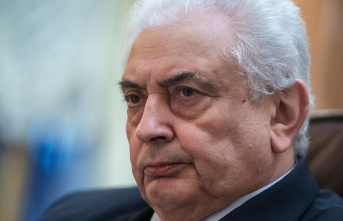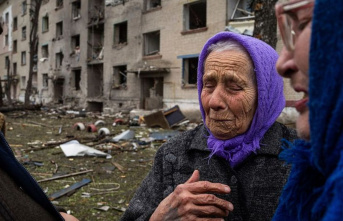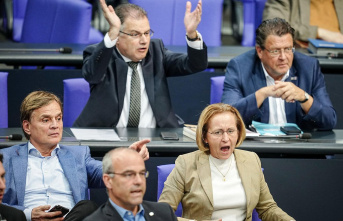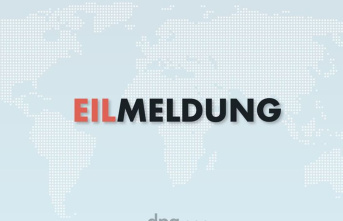Before a meeting between Federal Interior Minister Nancy Faeser (SPD) and colleagues from several EU countries, the FDP interior expert Stephan Thomae called for a better distribution of those seeking protection. Faeser must do everything to ensure that on Friday in Berlin "not just talks, but that concrete results come out of it," Thomae told the "Welt". Refugees are currently distributed very differently within the EU. "It can't stay like this," said the FDP politician.
On Friday, Faeser and her colleagues from France, Italy, Sweden, Spain and Belgium made a new attempt to reach an agreement on the planned reform of the Common European Asylum System. The background to this is the EU Commission's proposals for a reform of asylum and migration policy from September 2020, which were intended to end a long dispute between the member states. When it comes to the core of a possible reform - the question of the distribution of people seeking protection and other forms of solidarity - the 27 member states are still far from a solution.
As the country of destination for many asylum seekers, Germany has a particular interest in reducing so-called secondary migration within the European Union. This is another reason why Faeser wants to make progress in the reform process, which has been largely deadlocked for years, before the European elections in spring 2024. Countries with external borders like Italy, where many people seeking protection arrive by boat, want more solidarity from other member states.
Solidarity in other ways too
Not every member state can do the same, said SPD parliamentary group leader Dirk Wiese of the "world". "We cannot impose any on member states that do not want to take in refugees." It is conceivable that the contribution to solidarity will be made in other ways, for example through a stronger commitment to repatriations. "Coupling to financial resources would also be conceivable," said Wiese. "Whoever takes in gets more money from the budget." The aim of the meeting on Friday is "to gain an understanding of the respective positions in a personal conversation".
The Union accused Faeser of denying a "special approach to migration policy" and refusing efforts to better protect the EU's external border. "All EU countries have long since reached the point where they want to control and limit irregular migration, except Germany," said Alexander Throm, spokesman for domestic affairs for the CDU/CSU parliamentary group in the Bundestag, on the news portal "t-online".
From the point of view of the Green European politician Erik Marquardt, deterrence and isolation do not solve the actual problem that too few EU states take in refugees and that countries like Germany are therefore particularly challenged. "Germany must play a leading role in a "coalition of cohesion" of states that want to help refugees," he demanded on "t-online".
In February, the Federal Office for Migration and Refugees (Bamf) received 26,149 asylum applications. Around 24,000 of these affected people who applied for asylum in Germany for the first time - for comparison: in February 2022 there were 13,915.











